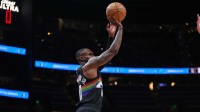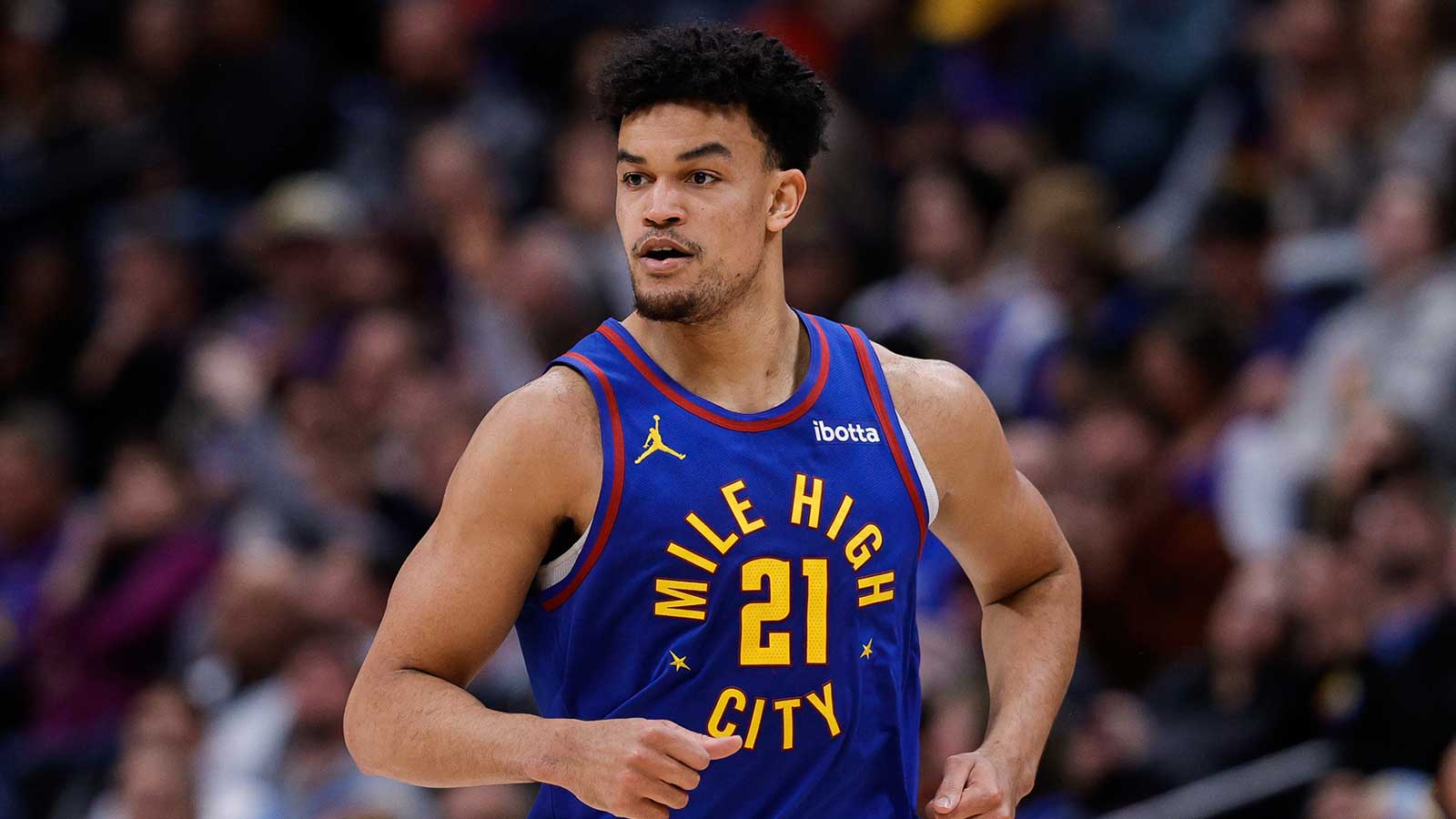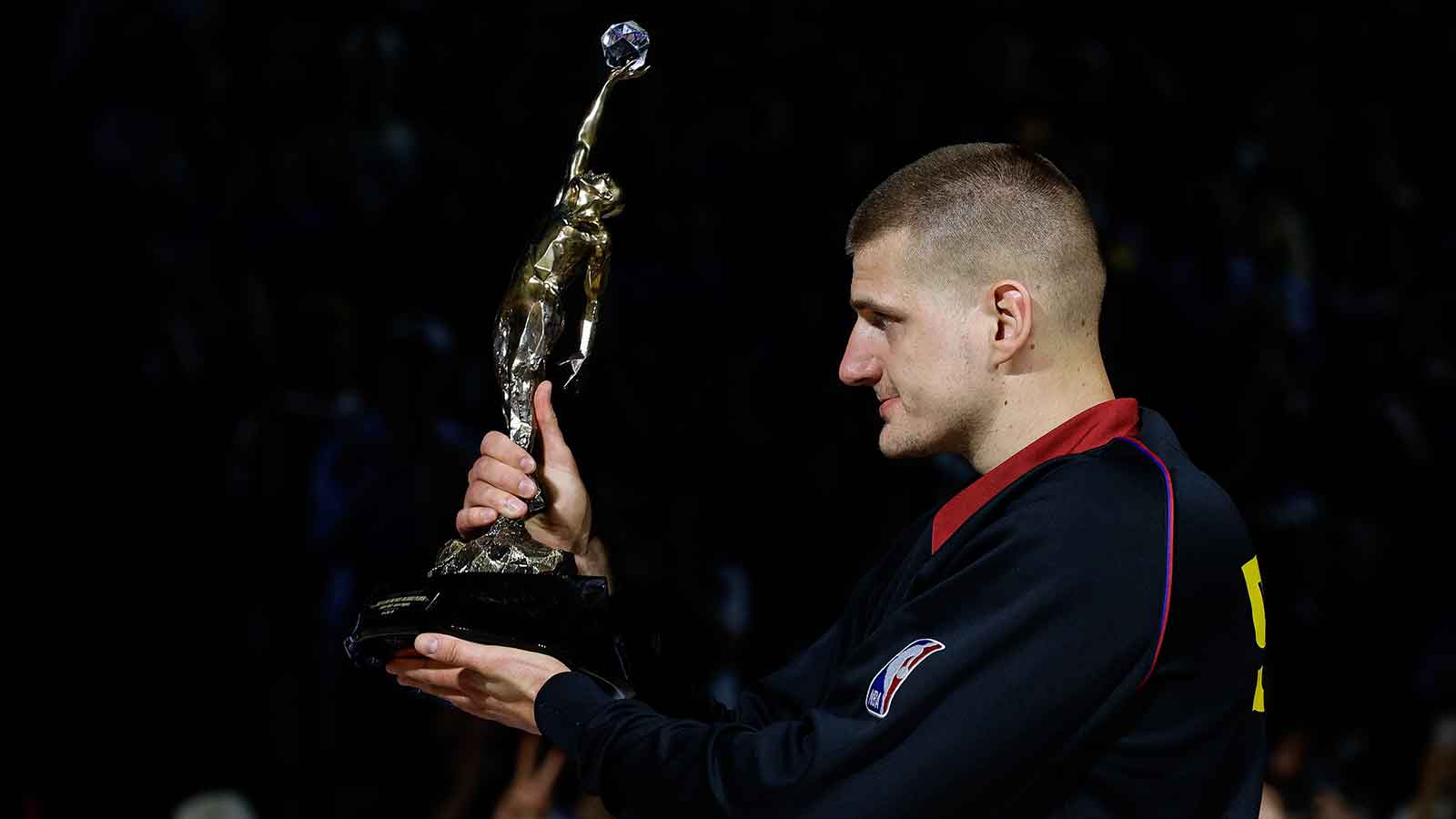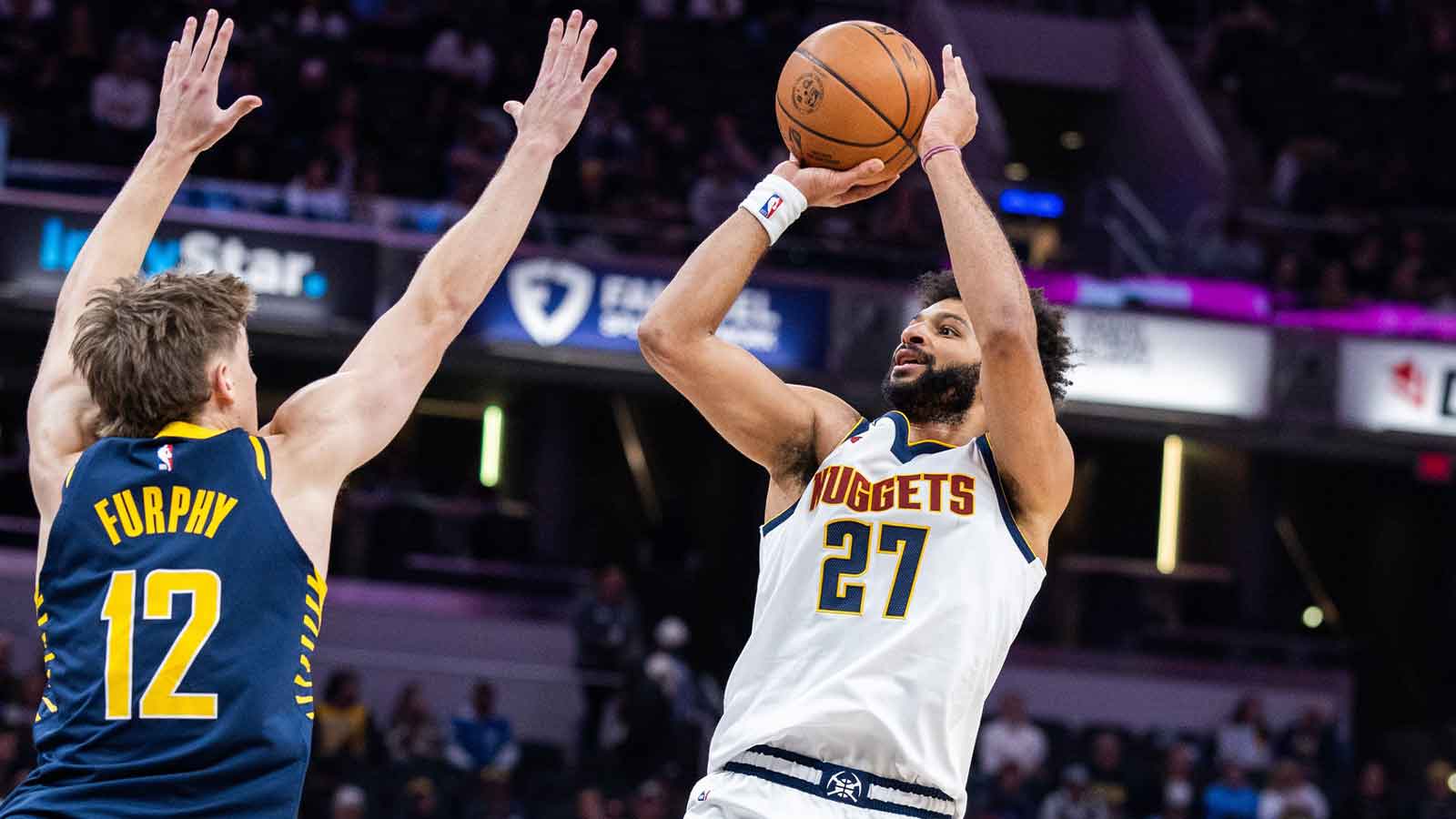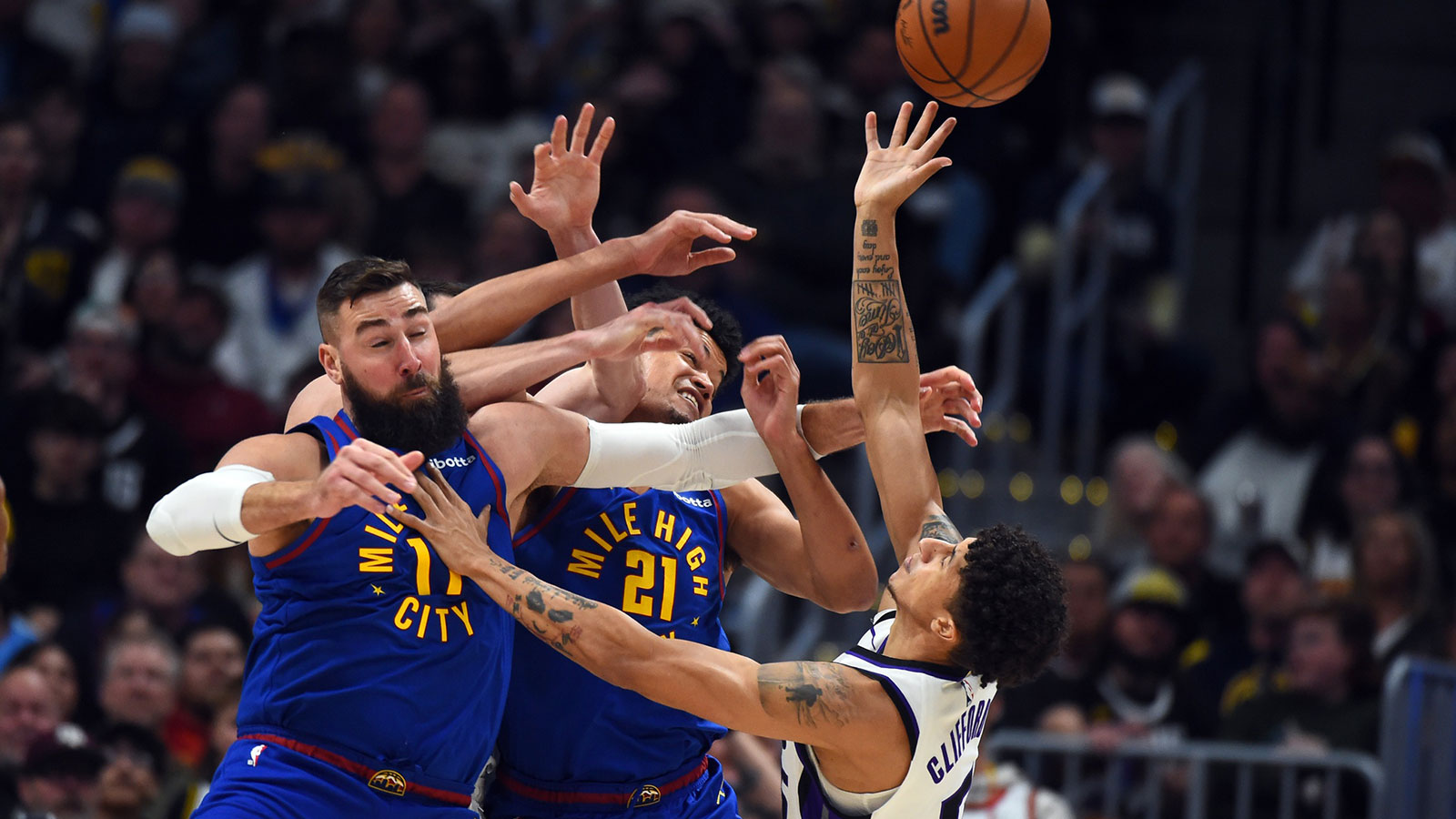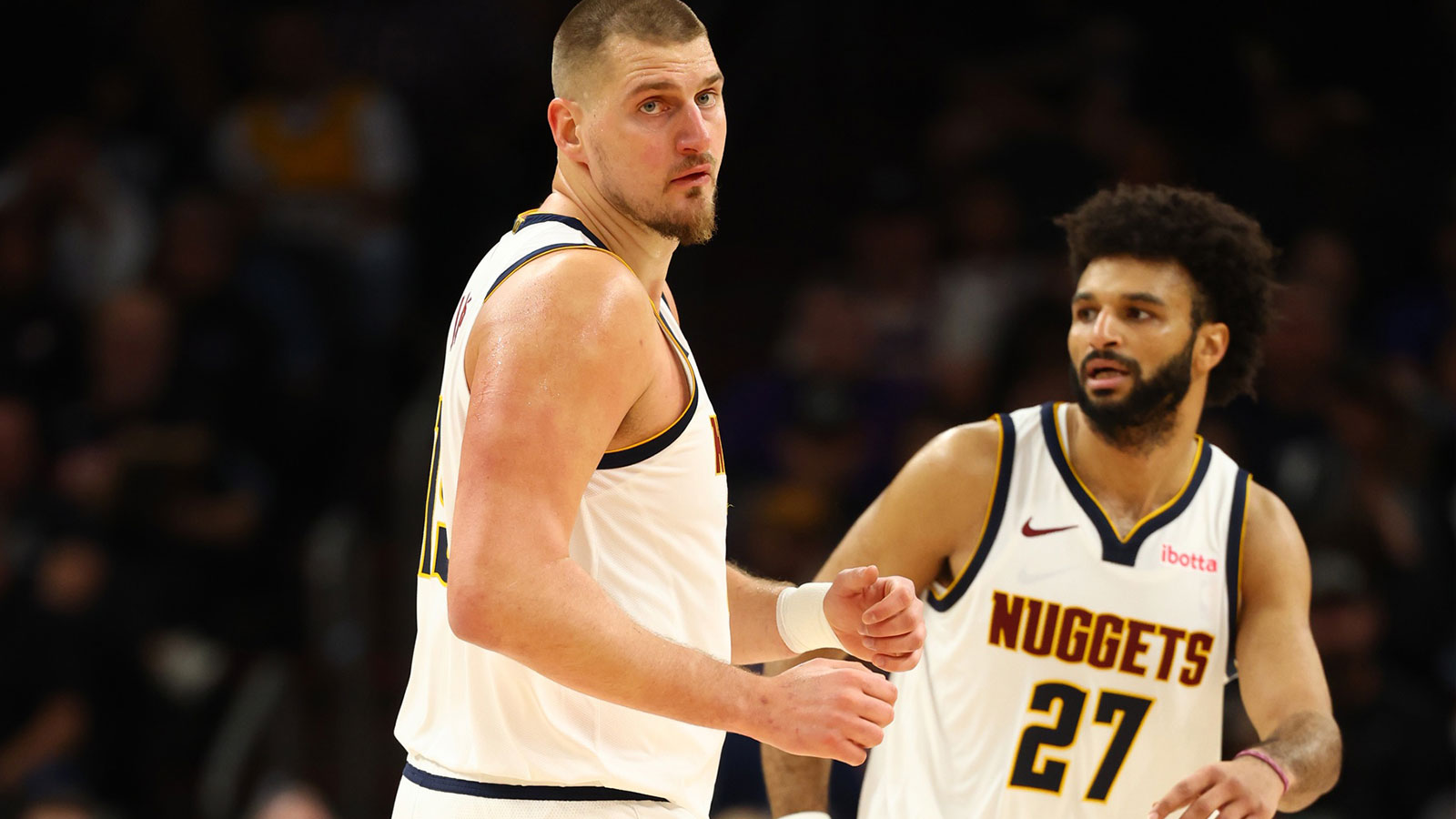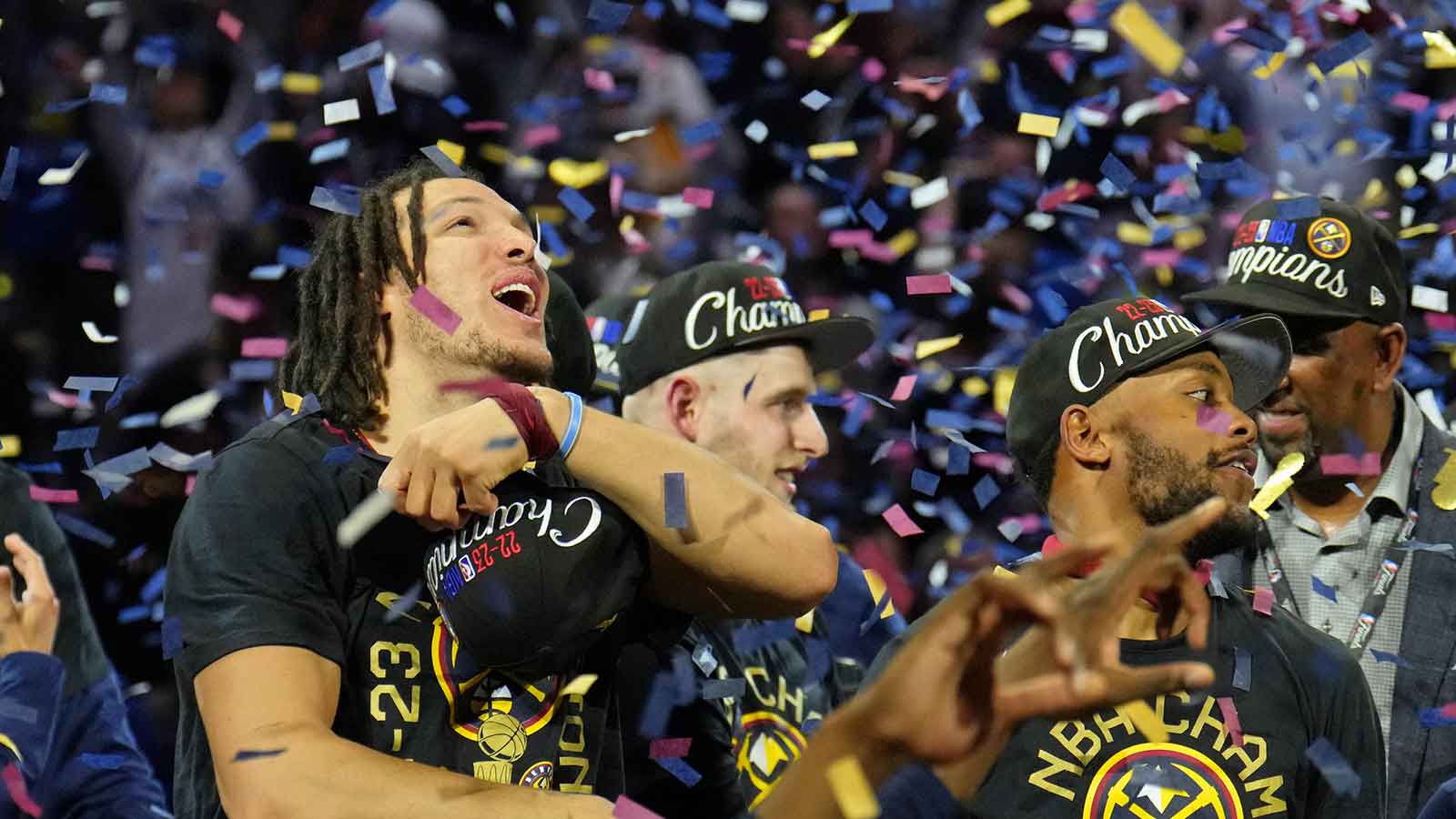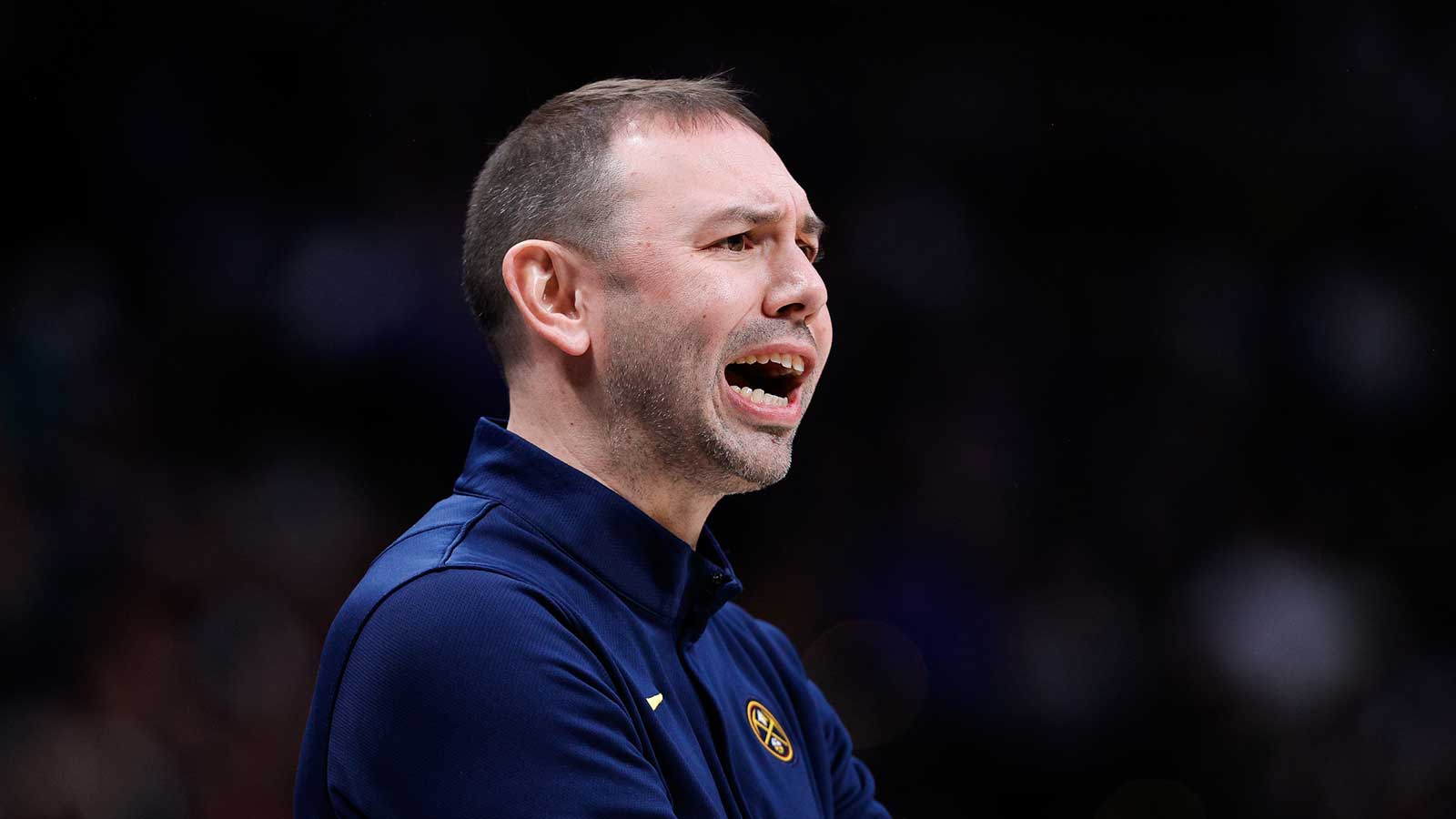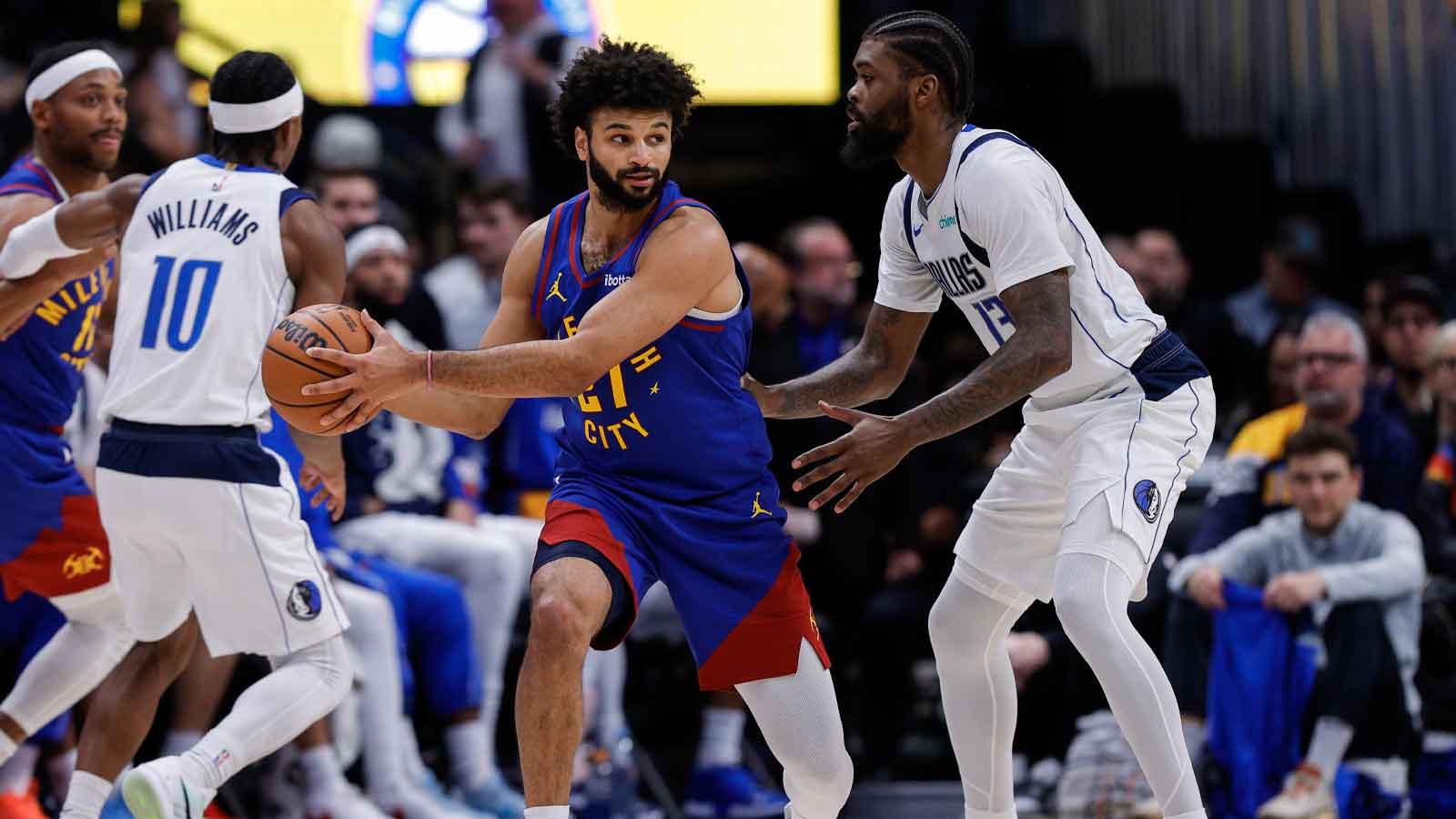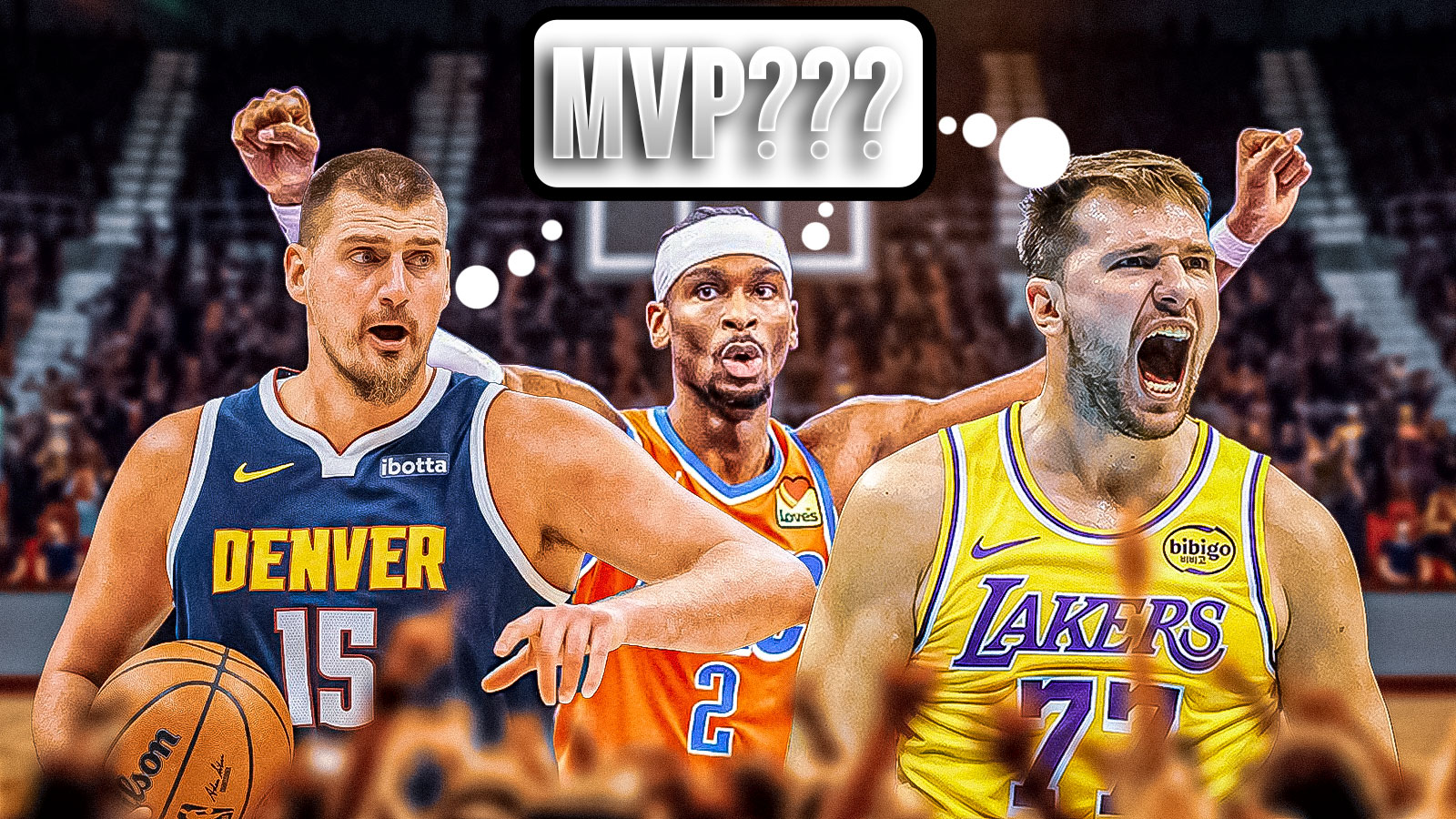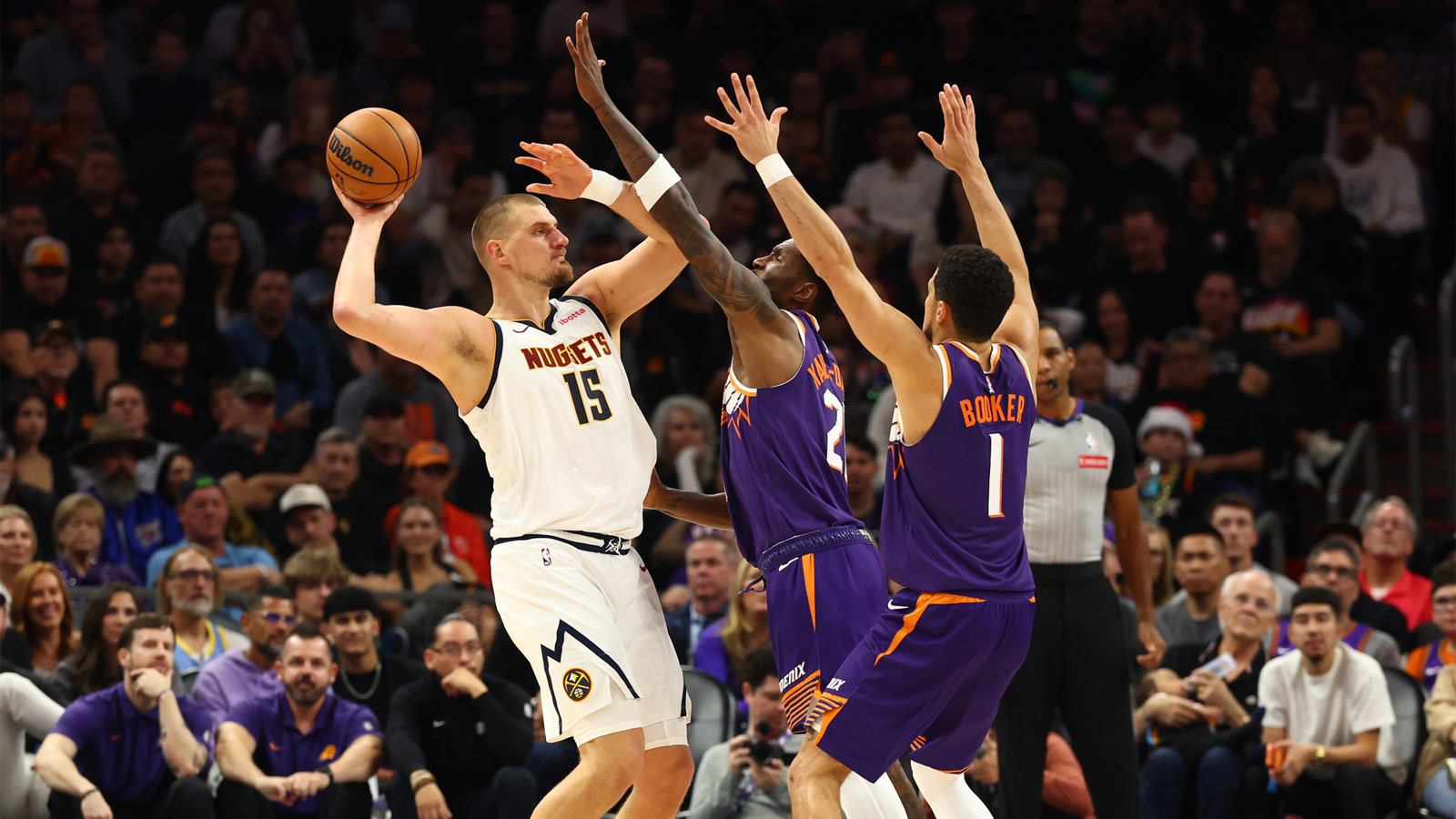In a fitting matchup between two teams on opposite ends of the playoff experience spectrum, the reward for a 54-win Denver Nuggets season is a San Antonio Spurs squad that is built to take advantage of newcomers. Gregg Popovich has coached 277 playoff games to Michael Malone's zero. Given their relationship, it creates a fun battle of coaching contrasts and preparation within a first-round war.
Nobody will be more prepared than Popovich and the Spurs, even if they are lacking the defensive ceiling to keep up with Denver's style and main weapon, Nikola Jokic. These two are much closer across the board in performance metrics than your typical 2-7 matchup. They finished neck-and-neck in offensive rating (roughly 112.2), although the Nuggets did the unthinkable and placed 10th in defensive rating to San Antonio's 20th.
It doesn't tell the entire story, however. Since the All-Star break, which includes about a third of the season, the Spurs are 15-8 to Denver's 15-10. Now, they square off in the lighter portion of the West's bracket. For both, the beauty in this is how the winner will advance to play either Oklahoma City or Portland instead of the conference's hotter teams.
What are the primary factors that should determine this series?
1. This is likely the best matchup to maximize DeMar DeRozan
The recent playoff failures are what they are. A year ago in the second round, DeRozan couldn't stay on the court. His offensive approach and the production he brought to the table didn't outweigh the overwhelming disappointments on the defensive end versus Cleveland. Thus, Dwane Casey benched him in critical moments.
As much as DeRozan has hurt the Spurs defensively this year too (they are a net positive when he sits because of his letdowns there), he should help them immensely as an offensive motor in this series. Denver might have increased its toughness and physicality on defense, but what Malone really doesn't have is enough size on the wing or at the primary guard spots. In his 10th year, DeRozan has mastered the art of maneuvering his way into the post, mainly due to his footwork, and creating adequate space to get a solid shot. With Jamal Murray, Gary Harris, and Will Barton needing to play the most minutes for the Nuggets to be successful, it leaves a glaring weakness. If they are stuck battling with DeRozan on post-ups at the end of the shot clock, none of them have the size to rattle him.
During the four games versus Denver this year, DeRozan didn't light up the scoreboard (averaging 20 points), but he did shoot 54.5 percent from the field and generate 28 total trips to the foul line.
With him, it's not only about the craftiness and mid-rangers. Against the Nuggets, he drove to the rim nearly 16 times per game and shot 60 percent while doing so. His best attribute in this series, though? How much he forces Denver's help defenders to commit and leave shooters. He isn't only driving to score. On those 15.8 penetrations per game, he passed out of 49 percent of them.
For this matchup specifically, it's important because DeRozan has often forced the Nuggets' weakside defenders to rotate and sometimes overreact. Denver, especially without being in the playoffs with this core, might struggle with staying disciplined on the defensive end. The smallest mistakes can cause everything to unravel. If he is pushing downhill after he gets a step, how much should we trust Denver to get back to the shooters?
On DeRozan's post-ups, all it takes is a secondary defender rushing at him before he gets into his shooting motion. He has improved his playmaking to such a high degree, he'll find those shooters left open. Plus, remember, the Spurs are first by a good margin in spot-up efficiency this year. They have an effective field goal percentage of 57.1 percent when their shooters are spotted up and those possessions account for 22 percent of San Antonio's offense.
This makes it a difficult balance to achieve for Denver. Murray is a below-average defender and while Harris fights hard to navigate around the court, he will most likely get cooked if DeRozan wants to create for himself. Torrey Craig is Denver's best possible option in one-on-one scenarios against DeRozan, as Jokic and others have labeled him as their best defender. However, Craig can't be everywhere. It also disrupts the Nuggets' best lineup (Murray-Harris-Barton-Millsap-Jokic) to replace any of those scorers.
There are two sides of a coin, though. DeRozan was essentially useless defensively against a Cleveland team that didn't do anything complex offensively. Now, he'll be in the middle of a series where he's asked to monitor cuts, constantly communicate switches off-ball, and stay attached to more shooters.
San Antonio does have Derrick White to help them stay connected, but the Nuggets are still so lethal at hitting you with complex actions. Murray is White's defensive assignment here, but then he sets a cross screen while cutting through the lane, only to fake a backscreen on DeRozan's man. Then, he caps off the play by getting a pin-down from Jokic:
https://streamable.com/05s5o
That was the start of a fiery sequence for Murray, who exploded in the fourth quarter and drilled four 3-pointers to bring the Nuggets within one point. He isn't going to be shy in this series and that's exactly what the Nuggets need to expose some of the holes in San Antonio's perimeter defense. DeRozan has the offensive tools to make a difference, but it's also going to be a challenge for all of the Spurs' guards to chase Denver around.
2. The fight for transition opportunities, even if it's not Denver's specialty.
Getting out on the break is not in San Antonio's DNA. It's really not in Denver's, either, despite the perception that they run teams to death in the altitude. The average pace of their four head-to-head games this year was under 96 possessions per 48 minutes — extremely slow and half-court based.
With that said, Malone has to know that San Antonio's transition defense has been a sieve. Outside of White, they don't have enough young defenders that constantly get back in time. It certainly isn't the case when Aldridge and Jakob Poeltl are sharing the court together (if Popovich decides to go that route at all).
The Spurs have allowed an atrocious and unbelievable 126.5 points per transition play this season, ranking 25th. Out of all playoff teams, that's dead last and behind the Clippers. For Denver to put its foot on the throat of this series, the path is there. Find a happy medium between being aggressive enough to cause open-court turnovers and not making too many gambles. The latter can get you burned. But the former should lead to easy offense in transition, especially with the quickness Denver has.
When the Spurs are forced to defend in transition after a live-ball steal, they allow 148.7 points per 100 plays (30th), per Cleaning The Glass. Talk about a nightmare.
3. Clear lineup advantages/disadvantages
What makes you cautious about judging anything we've seen from Denver's approach versus the Spurs is how limited they were with scorers and finishers. Jokic, Murray, and Harris only played 42 of the possible 192 minutes together in the season series. During those 42 minutes, Denver was a plus-17 and shot 45.5 percent from three. They also carved up the Spurs for 32 assists to 11 turnovers.
It's a small sample size in the grand scheme of a season, but not necessarily when thinking about how they'll look on Saturday. Both of these statements can be true: San Antonio has entered a new gear and looks more engaged defensively since February, but they are also short a Kawhi Leonard or Danny Green to use against top-level shooting and movement.
To the Spurs' advantage, however, could be the Nuggets going to their two-big lineup with Jokic and Mason Plumlee. You would think this could be a fortunate scenario for Plumlee since the Spurs have a lot of tall options and Denver will need as many post defenders as possible to throw at LaMarcus Aldridge.
After all, Aldridge has grilled them in the interior this season, shooting 23-of-25 in the restricted area versus Denver. Yes, 92 percent! He's 7-of-14 from between 5 and 15 feet, but only 9-of-31 from mid-range and beyond. He cooks them in the interior, so obviously playing Plumlee would be a positive, right?
Well, not so much … at least to this point.
Malone went to the Plumlee-Jokic pairing for 48 minutes across the four games during the season. They were outscored by 16 points and those lineups committed 23 turnovers. Again, this might just be a regular season thing and not translate to the first round, but the Spurs have seemingly owned those situations.
When Plumlee is in the game, San Antonio likes to put Denver's bigs in unfavorable positions. Here, Plumlee drops back into the paint on a pick-and-roll, but his man (Rudy Gay) is left wide open. Jokic rotates off Patty Mills in the corner. Nobody can get back in time:
https://streamable.com/f5n3e
Series Pick
Nobody actually expected Denver to go from missing the postseason to hosting a first-round matchup. Even if San Antonio has a style and two go-to scorers that should give them an edge in close games, they have been absolutely deplorable on the road all year. In Mile High, the Nuggets outscored the Spurs by 14 points per 100 possessions in non-garbage time minutes. It was with DeRozan and Aldridge active, too. Having homecourt elevates them to a different level, literally and figuratively.
If the Spurs advance, it's because they left Jokic open at the top and took away his passing lanes. Jokic is shooting 24.5 percent from deep over his last 15 games. Popovich needs to force him to shoot.
Aldridge has a couple of unreal performances in him to make it competitive. This is probably a home-and-home series and the two seed will be tested.
Nuggets in 7






